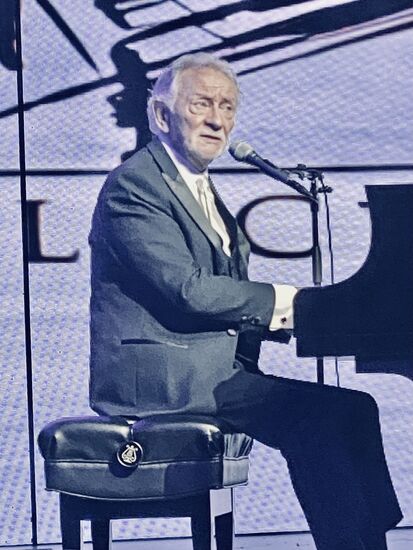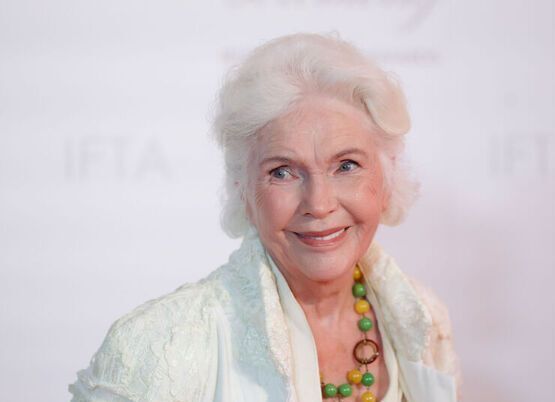Anthony McCarten has adapted for the screen his non-fiction books “The Pope” and “Darkest Hour: How Churchill Brought Us Back From the Brink.” PHOTO: JACK ENGLISH
Page Turner / Edited by Peter McDermott
The Catholic Church has gone 40 years now without a native of the Italian peninsula at its head. Few were predicting on Sept. 29, 1978, however, when the news of the sudden death of Pope John Paul came through, that a 453-year run was over.
After the former Albino Luciano’s reign ended on its 33rd day, the College of Cardinals had to reconvene in Rome to choose another pope. That turned out to be Cardinal Karol Wojtyla from Poland, who took his predecessor’s name. The epoch-making 26-year tenure of John Paul II was followed by that of his close advisor Cardinal Joseph Ratzinger, a German, who became Pope Benedict XVI. And then in 2013, Jorge Maria Bergoglio, an Argentinian, was the name announced shortly after white smoke was seen coming from the roof of the Sistine Chapel.
The reformist Pope Francis is the first to use that name, the first non-European – albeit one with close family ties to Italy – to lead the Church in 1,200 years and the first Jesuit.
For author and screenwriter Anthony McCarten, though, the most dramatic of firsts in those four decades of Vatican history was the resignation of Benedict – the first voluntary departure of a pontiff in 719 years. Why, he asks, did the “most traditional pope of the modern era do the most untraditional of things imaginable?”
His book is accompanied by a soon to be released feature film, adapted by him, starring Anthony Hopkins, as the Bavarian-born pontiff, and Jonathan Pryce, as his Latin American successor.
It’s hardly the first time that the prolific McCarten has scripted the dialogue for actors playing famous men on screen. His previous work of non-fiction, “Darkest Hour: How Churchill Brought Us Back From the Brink,” was adapted for the film in which Gary Oldman was the wartime prime minister; he was co-writer on “Bohemian Rhapsody,” which won Rami Malek the Oscar for Best Actor this past Sunday for his portrayal of Freddie Mercury; and he wrote the screenplay for “The Theory of Everything,” which is based on Jane Hawking’s memoir of her life with Stephen Hawking.
But McCarten, in a way, has had a lifetime of preparation for the latest project. A former altar boy, he was raised in an Irish community that remained remarkably self-contained four generations after its migrant ships had reached New Zealand.
In the prologue of “The Pope,” he writes that his life today, “a writer’s life, owes its roots to the animating beauty of the liturgy, heard first through young ears, an art located in the ornate language that inclined all to think in multiple dimensions and across time and space, never contemplating life without first mulling death. The factual was hitched irreparably to the fictional and distinguishing between the two was actively discouraged.”
A little later he says, “The church in our town, hexagonal and spireless, was at the geographical and psychological center of our lives. If I ever doubted this, my mother would set me straight. If I questioned some aspect of creed, some far-fetched claim made from pulpit or book, I would receive her stock rebuke: ‘Anthony, a little knowledge is a dangerous thing.’”
When a cousin died a few years ago, McCarten’s eldest sister, a devout Catholic, texted him to suggest that he light a candle for her if he was near a church. He was in fact in Rome and his trip coincided with a high-profile event for Pope Francis. He wondered about Benedict, the pope emeritus, and his whereabouts. Close by, it turned out. McCarten was intrigued and set about writing “The Pope.”

Anthony McCarten
Date of birth: 1961
Place of birth: New Plymouth, New Zealand
Spouse: Eva
Children: 3 of mine, 3 of Eva’s.
Residence: London.
Published works: Novels: "funnygirl" (2015); "Brilliance" (2006); “Spinners” (1999) “The English Harem” (2002), “Death of a Superhero” (2006); Show of Hands (2008); In The Absence of Heroes.” Non-Fiction: “Darkest Hour: How Churchill Brought Us Back From The Brink” (2017); “The Pope: Francis, Benedict, and the Decision That Shook the World” (2019).
What is your writing routine? Are there ideal conditions?
No fixed routine. A cup of tea within easy reach renders most environments amenable. I put my flexibility down to growing up as one of seven children amid carnivals of chaos, which left me largely insensitive to any noise below that of a cannon blast.
What advice do you have for aspiring writers?
Make yourself talented. As soon as you can. This is done by making large and consistent demands on those parts of the brain that govern creativity. You will eventually get good, then better than good.
Name three books that are memorable in terms of your reading pleasure.
“Love In The Time of Cholera,” “Herzog,” “The Great Gatsby.”
What book are you currently reading?
The second part of a major biography of the great American writer Saul Bellow.
Is there a book you wish you had written?
The Bible.
Name a book that you were pleasantly surprised by.
The Bible.
If you could meet one author, living or dead, who would it be?
Winston Churchill - I’d like to know if I depicted him correctly.
What book changed your life?
“The Norton Anthology of American Literature, Volume 2”
What is your favorite spot in Ireland?
Innisfree, in my mind.
You're Irish if…
You hear a joke about an Englishman and a Welshman and a Scotsman going into a bar and think there’s something terribly wrong with this joke.








